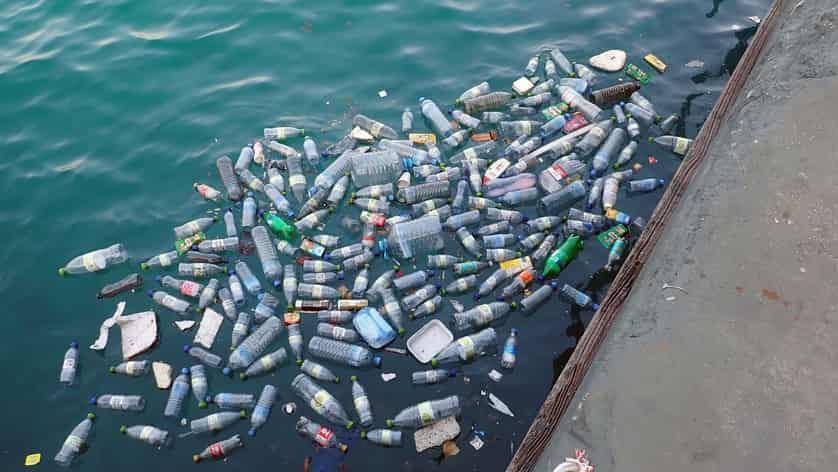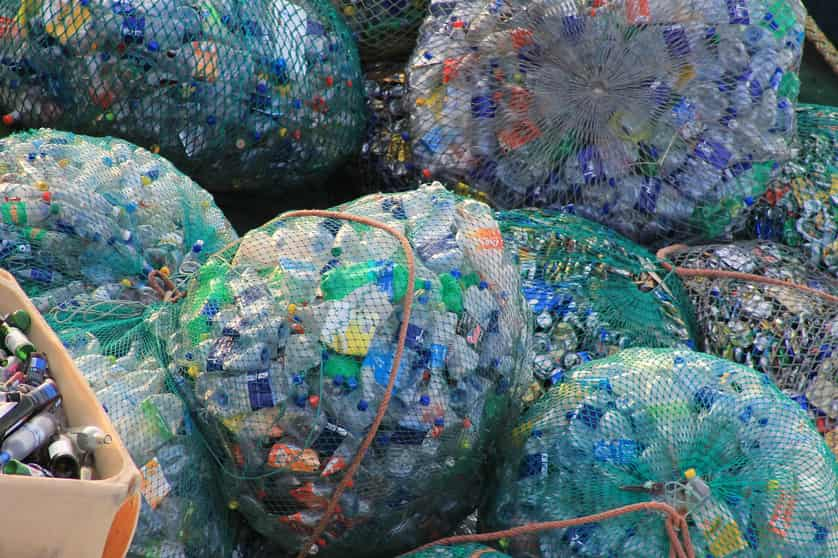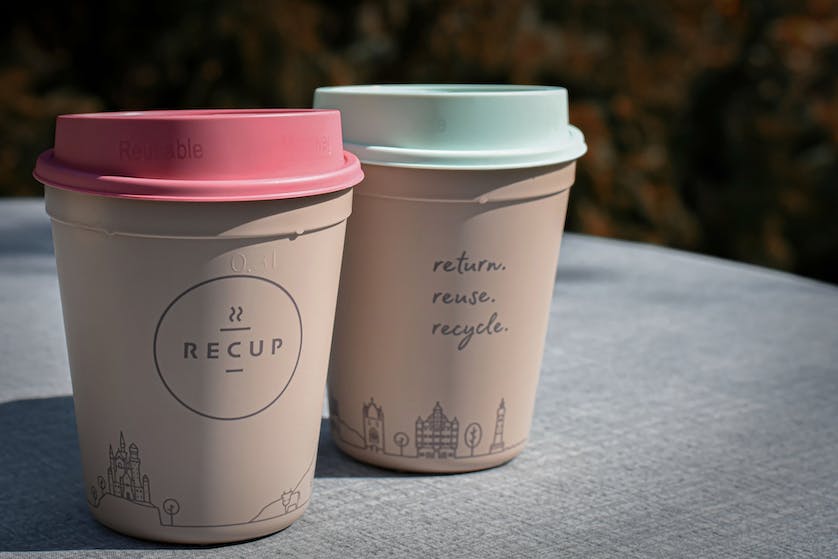Walking around a floating market on the outskirts of Bangkok, I was spending the day with a Thai friend and a few of his work colleagues. While we were buying food for a shared lunch, I noticed his colleague accepting a plastic bag with every single item of food she bought. She started to look like the main character from the movie ‘Confessions of a Shopaholic’ with bags quickly filling up space on her tiny lower arms.
As she went to buy pomelo slices, I pulled out my reusable cotton bag and expressed ‘Mai ow tuung plastic naka’ (no plastic bag) to the market vendor and motioned for him to put the newly purchased pomelo in my cotton bag. The market vendor smiled and lightly chuckled as he gently teased me about whether he should take off the plastic wrapping too.
It happened once again as I bought a coconut and whipped out my reusable straw. The market lady cackled with laughter and expressed “Dii maak farang!” (very good) as she put a plastic straw back into its box.
“Why is there such a cultural difference between westerners and Thai people when it comes to the environment and using plastic?” I curiously asked my Thai friend.
“Thai people are conscious about the environment too, they’re just not as serious as farangs,” he replied. “It’s more common amongst the younger generation as it’s seen as a ‘modern’ thing to do. I guess it’s too much of a culture shift for older people who aren’t used to carrying their own bags, straws, and cups. But people are trying. There’s more awareness now from the government on the news and social media.”
Despite this eco-conscious way of living becoming a seemingly ‘new’ way of living for most of the Thai population, Thailand has been making small ripples in a more environmentally-aware world.

Environmental consciousness has been gaining attention worldwide over the past decade. In 2019, we saw widespread media reporting of environmental problems such as natural disasters and the largest climate strike in history, led by Greta Thunberg, which grabbed the attention of global citizens worldwide.
But where does Thailand stand in this global movement?
Where does Thailand rank with Eco-consciousness?
Over the past three decades, Thailand has made remarkable progress and advances in economic progress. But this is not without costs to the environment. Industrial power plants, urban architecture, an increase in vehicles and seasonal agricultural burning have all led to the destruction of forests, overuse of the land and water and shocking air pollution levels
Air pollution
Anyone who has stayed or visited Chiang Mai during the ‘burning season’ will have experienced the awful air quality first-hand. In March 2020, Chiang Mai was given the top spot for having the worst air pollution in the world. Bangkok came in at 18th place. Air pollution is responsible for five million deaths each year on a global scale.
Ocean pollution
According to WWF, more than 310 million tons of plastic were generated in 2016 – one-third of that plastic ended up in the ocean. They diagnosed the issue as being ‘uncontrollable’ and warned the global population that unless change happens, the plastic pollution of our oceans could double and impose severe threats to marine life, our economy, and our health. The last global research report in 2010 identified the top polluting nations – Thailand was ranked at number seven, with a contribution of 1.03 million tonnes of plastic waste to the ocean.
In summary, the Sustainable Cities Index 2018 report, which explores city sustainability, ranked Bangkok 80 of out of 100 major cities around the world (1 – best; 100 – worst).
What is Thailand doing about reducing the use of plastic?

From the 2 million tonnes of plastic waste generated by Thailand per year, most of the waste is single-use plastic bags from malls, supermarkets, convenience stores, local markets, and street vendors.
In September 2019, Varawut Silpa-Archa, the Minister of Natural Resources and Environment announced a public campaign banning the use of plastic bags in a public campaign to encourage shoppers to use reusable bags from January 2020. They even went as far as pixelating plastic bags in commercials and TV shows.
Many big-name companies such as 7/11, Big C, Tesco Lotus, and Villa Market were onboard and made the necessary changes to support this campaign. However, disappointingly, many locals and expats (including myself) are still being given unbranded plastic bags in our local 7/11s without asking for them.

Along with the plastic bag ban movement at the beginning of 2020, Starbucks took the lead in saying ‘no’ to plastic straws. A global commitment, the food and beverage retailer started to provide strawless lids and eco-friendly straws to their customers. They are committed to eliminating more than one billion plastic straws from their stores per year. This hasn’t gone unnoticed by Thai coffee brands. Cafe Amazon now provides biodegradable straws and compostable cups and Inthanon Coffee uses cups made from 100% plant biomass.
In response, Thailand has promised to ban all plastic straws, cups and styrofoam containers by 2022. Government Spokesman Athisit Chainuwat added that the goal is for Thailand to only use recycled plastics by 2027.
Annual trash collection events
For those of us who have lived near beaches, we are already familiar with beach cleanup programmes led by the government and local organisations on an annual or quarterly basis.
In Bangkok, a professor at Thammasat University has organised the biggest river cleaning campaign called ‘Kayaking for Chao Praya’. Every year, volunteers kayak along the Chao Praya river, collecting trash and debris along the way. Volunteers cover 400 kilometres of the river in approximately 10 days.
Sustainability programmes in schools
International and public Thai schools are getting onboard with sustainability and plastic reduction programmes, whether they are internal or external. Programmes such as the Traidhos Three-Generation Community for Learning Barge Programme offer field trips for students around Bangkok and within surrounding National Parks. In 2019, the programme successfully engaged 1,331 students in service environmental projects: from tree planting (560 trees planted) beach and river clean-ups, and litter picks.
Kirsty Shakespeare, Head of the Barge Programme states, “Students who take part in service activities can see firsthand the problems caused by plastic waste and unsustainable living. The programme gives them the platform to take positive and direct action which is very empowering for young people.”

What can we do to help?
Invest in reusable bags, bottles, straws, cutlery, cups and boxes
Having a reusable collection can drop your plastic usage dramatically. It puts an end to the plastic bag hoarding and the number of plastic juice cups clogging up your bin. Farmers’ markets are a great place to find these commodities. Ecotopia in Siam Tower and The eco shop in BACC also stock reusable products.
Go to a refill station
Instead of continually buying products that come in plastic packaging (haircare products, body products, cleaning products), take your empty bottles to a refill station. I regularly visit Better Moon Cafe On Nut. It’s simple, cheap and very environmentally friendly.
At Better Moon, you can also get cupboard staples such as pasta, tea, lentils, nuts, and dried fruit as well as reusable products available for purchase. It’s heaven for eco-conscious people.
They also have a small refill station in the middle of the Ekkamai BTS.

Once you’ve invested in your products – use them! Put them in your bag and take them wherever you go. Ordering coffee? Give them your refill coffee cup to use. Buying fresh fruit from the street vendor? Ask them to put the fruit in your reusable Tupperware box. Decline plastic cutlery at the street food market and use your own.
Some people feel ‘stupid’ doing this and fear that they will be laughed at. I can’t guarantee some people won’t tease or joke with you, but it will be with good intention and maybe they will feel encouraged to make some changes themselves.
Use water refill stations
The amount of plastic water bottles I see in my condo trash area makes me shudder. Especially when most condos have water refill stations installed. They are literally everywhere. Walk down your soi and I guarantee you will see one. Buy a 45B gallon from 7/11 and keep refilling it for 5B a time! Think of all the money and plastic you’ll be saving!
Go to a clothing swap
Along with plastic, the fashion industry is one of the most polluting industries in the world. Globally, we produce 13 million tonnes of textile waste each year 95% of which could be reused or recycled.
In a mission to combat this, Jessica Teal, a long-time Bangkok expat came up with the initiative ‘Swap ‘Til You Drop’ – a clothes swapping platform based in The Home BKK, Sukhumvit 23, Bangkok. The swap is normally hosted once a month and the concept is pretty simple. You bring any clothes you no longer want and swap them for something you do want!
Jess can see the difference this is making to people’s attitudes towards fashion waste. “When people come to swap, they are becoming more aware of the positive impact they are having on waste reduction,” Jess states, “I think Thailand has great potential to be more sustainable and eco-friendly. People don’t really realise how one small action can make waves globally.”
Along with the rest of the world, there is still a lot to be done to tackle climate change. However, regardless of whether you think Thailand is doing enough or not, they are trying. We can all take some social responsibility and do what we can to limit our own use of plastic and reduce waste.
For a more local look at the plastic and waste situation, you may find these articles interesting:
A comprehensive overview of Chiang Mai’s waste problems.
This harrowing story of plastic pollutions physically harming.
Effective ways of reducing plastic consumption now.
Combatting convenience: Plastic addiction in Chiang Mai.
The Greta Thunburgs of Chiang Mai, young activists pushing for change.
Plastic on every street.
This article was kindly shared by Expat Life in Thailand, a CSR community magazine run like a charity. It is a bimonthly print lifestyle magazine for expats living in Thailand.
It is enthusiastically written, then proudly distributed and avidly read by the affluent expat/international community resident in Thailand. It is also increasingly read by Thai HiSos that have an interest in international matters, a business serving expats or children at an international school or university. Carrying short articles on education, travel, healthcare, fashion, beauty, music, the arts and culture, nutrition, property, ecological issues, profiles of foreign ambassadors or leading business people, networking opportunities and much, much more.
